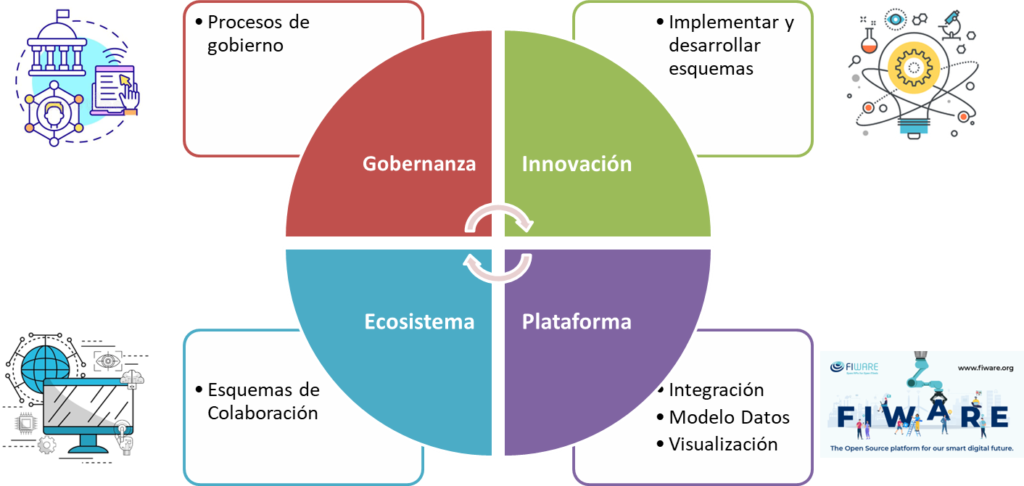For us, an Intelligent City or Smart City is one that is characterized by the intensive use of ICT in the creation and improvement of the systems that make up the city.
We consider a territory to be intelligent when it adopts intensive ICT solutions and develops the capacity to create, collect, process and transform information to make its processes and services more efficient and effective, allowing it to improve the quality of life of its inhabitants through the efficient use of its resources.
We developed a robust and complete Smart Cities model, the result of our research and experience. This is structured under the following 4 components:

With the projects that CINTEL has developed in smart cities and territories, you will obtain multiple advantages because they seek to respond to needs such as environment, security, mobility, education, tourism and agriculture, among others. A smart territory allows you to:
Why work with CINTEL?
With extensive experience in accompanying digital transformation and the development of Smart Cities, at the Center we have built the implementation model for smart cities and territories, through a next-generation middleware solution with the following features;
In addition, the technological platform, based on FIWARE building blocks, makes it possible to bring the Smart Cities services and applications offer to reality.
This is how we develop our model
This is how our methodology is composed
- Alignment of the municipal or departmental plan with smart cities and territories projects and initiatives.
- Implementation of the governance scheme today in conjunction with local or territorial ecosystem stakeholders.
- Discovery of challenges and projects in smart cities include:
- Call for city challenges taking into account the impact on citizens and ecosystem stakeholders, the windows of opportunity in the current context, the urgency of solving the problem, the relevance and feasibility of the solution.
- The definition of the challenge bank and the selection of associated technologies.
- The assignment of challenges and the methodological definition of open innovation.
- The implementation of prototypes and applied to the real city context.
- The generation of spaces for socialization to share learning and progress.
- Implementation of the Fiware technological platform for smart cities.
- The implementation of collaboration and sustainability schemes in the smart city and territory ecosystem.

